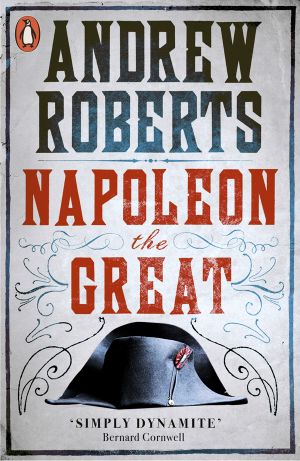Napoleon the Great

Towards a high attic -- inner peace -- a peculiarly cerebral goal for a country girl born in conventional Warwickshire, but then Mary Ann (later Marian) Evans was a peculiarly cerebral youngster once she got past being just peculiar in the eyes of the proper Pearson side of the family. This begins with a long genealogy and takes shape as a sad psycho-history of trauma: the delicate word "plain" assumes almost freakish proportions as it exiles Mary Ann to the solitary confines of her mind; only her affectionate father (who repeatedly calls her "my little wench") and idolized brother Isaac (who cannot return her desperate adoration) animate her unhappy years at boarding school until she finds a mentor in Maria Lewis and surpasses her in exaggerated piety. Straitjacketing herself in herself in an evangelical refuge, Mary Ann begins to question every worldly pleasure while still a student, finding a niche in, but no outlet for, scholarship; later, tending her widowed father and meeting new, freethinking people, she embarks on an about-face renouncing church and challenging meaningless custom. All of which is all the more poignant for being generated by borrowed strength: without the helping hands of Charles and Cara Bray and their stimulating, accepting cortege of intellectuals, Mary Ann barely functions and is variously exploited before falling in love with the unattractive but entirely devoted George Henry Lewes, her common-law husband and the man who urged her to write her novels. Each of these is briefly described from the viewpoint of the total George Eliot corpus, and Miss Vipont concludes "Marian Evans became a great novelist when she found the 'high attic' which symbolized that inward peace which at last enabled her to create a significant world. The rest of her story belongs to history."
This is not, then, a literary biography, but an oddly proprietary, even maternal study of the making of George Eliot out of a fragile, burdened Mary Ann Evans; its British orientation goes without saying, but not so, perhaps, the discomfort arising from such intense probing (replete with underdeveloped overtones) at an ambiguously young level by American standards. (Kirkus)